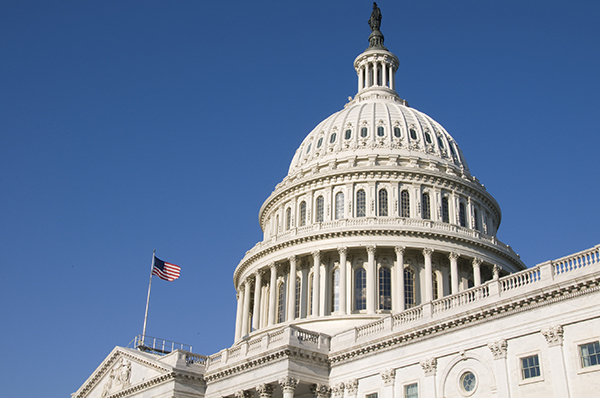At a turning point for voting rights, UCC Officers speak out
On Tuesday, June 22, a Republican vote blocked advancement of the For the People Act in the U.S. Senate. All 50 Republicans voted against discussion of the landmark voting rights legislation, prompting this statement from the elected officers of the United Church of Christ.
Throughout its history, the United Church of Christ has long witnessed to the importance of voting rights as a foundational civil rights issue and the way in which we honor the dignity and worth of every human being. Voting is often described as the heart of the democratic process, as the people we elect shape our collective life and wellbeing.
Public policy is the way we order our common life, and we hear throughout the Scriptures, from the prophets to Jesus, that when we are not in right relationship in human community, we are not in right relationship with God. In order to have an impact on the issues our faith calls us to address including climate change, hunger, systemic racism, homelessness, and endless war and so many others, we need to be able to have an electorate able to fully participate in the democratic process. Unless this happens, only a chosen few will truly be making the decisions, distorting the reality of what is facing most people in America.
A flourishing democracy is one that ensures every person has an equal opportunity to make their voice heard and be fairly represented. Voting and participation in democracy should be the easiest thing for citizens to do – but instead we see an overwhelming raft of measures to restrict voting rights in states across the country. Our democratic institutions are being distorted by dark money and deliberate disenfranchisement.
On Tuesday, the Senate had the opportunity to move forward with building a more fair, inclusive, and equitable democracy. Passage of S.1 For the People Act 2021 would lead to comprehensive election reform that preserves the right to vote for every person, ensuring the democratic process is protected and each person’s vote is counted and matters. These voter protections are critically needed, especially for Black and brown communities who have been the target of specific voter disenfranchisement tactics and historically have had the opportunity to participate in democracy intentionally withheld. Unfortunately, that legislation was never even given a chance for debate or deliberation.
That the Senate was unable to move forward with even consideration of S.1 in a robust debate speaks to the brokenness of Senate rules. Using the filibuster to stop consideration is alarming, but not surprising. The history of the filibuster being used for ill intent has a long cruel record. Our lauded rules of fairness and decency have only perpetuated a nation of white supremacy. The filibuster in its current form is not a tool for democracy and is in fact standing in the way. We cannot continue down this path of inaction, there must be filibuster reform.
As followers of Jesus, we are called to stand with the vulnerable; failure to address disparities in voting rights and access will continue to push people to the margins. The United Church of Christ urges consideration and passage of S.1 the For the People Act. A strong, vibrant democracy must move forward, not backward.
Faithfully,
The United Church of Christ National Officers
The Rev. John C. Dorhauer, General Minister and President
The Rev. Traci D. Blackmon, Associate General Minister
The Rev. Karen Georgia A. Thompson, Associate General Minister
Related News
A Prophetic Call for Justice and Peace in Palestine
The executive leaders of the United Church of Christ have issued the following statement...
Read More‘Love is Greater Than Fear’: Regional Youth Events get to the heart of gospel message
United Church of Christ teens attending this summer’s Regional Youth Events (RYE) are...
Read MoreUCC desk calendars available to order now
Prepare for your day, month and year with the United Church of Christ desk calendar —...
Read More


